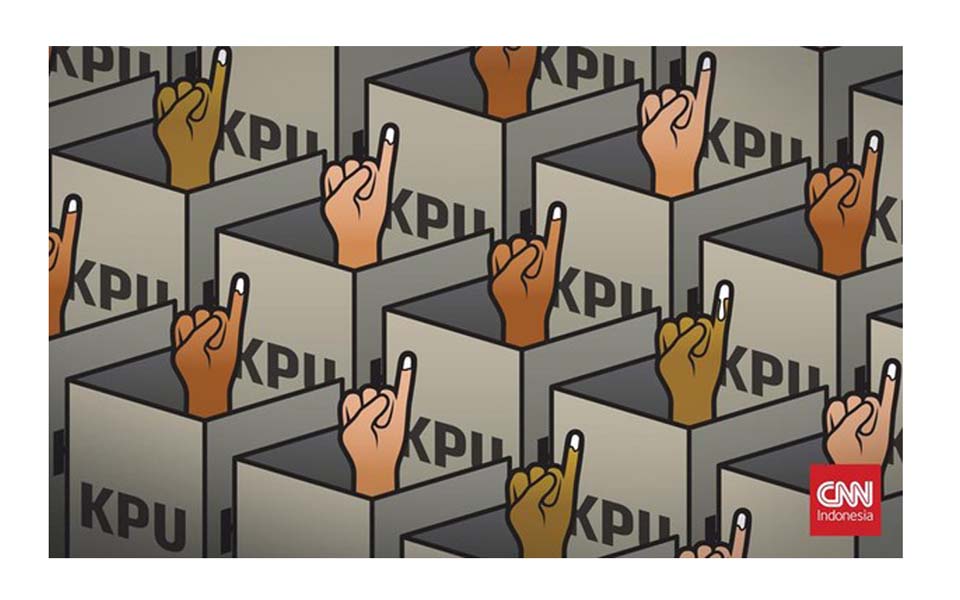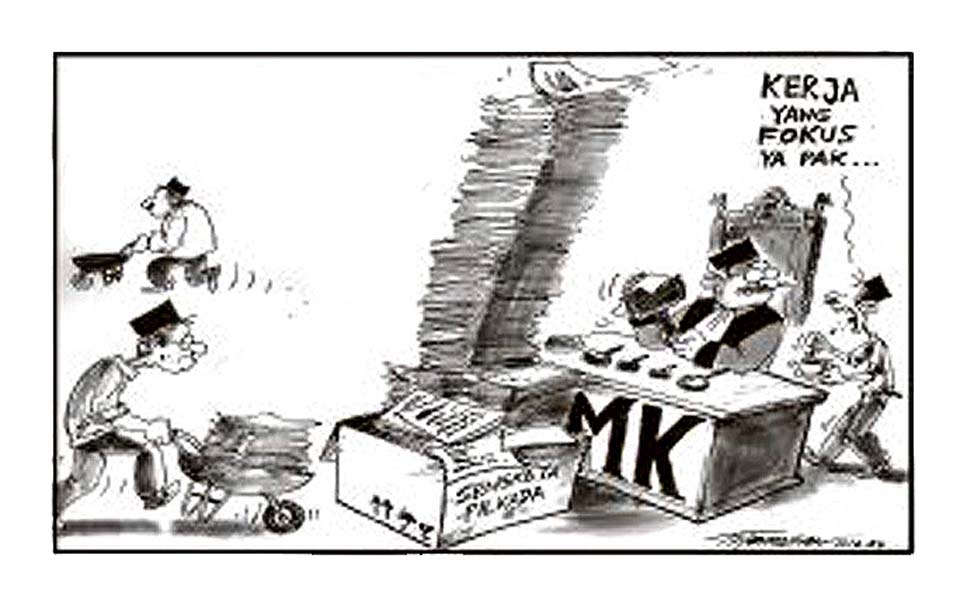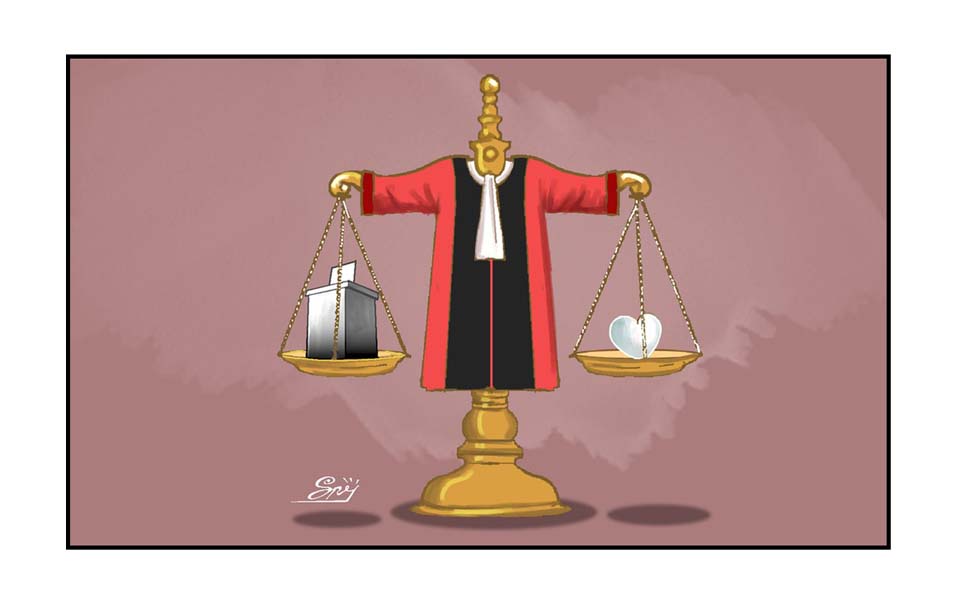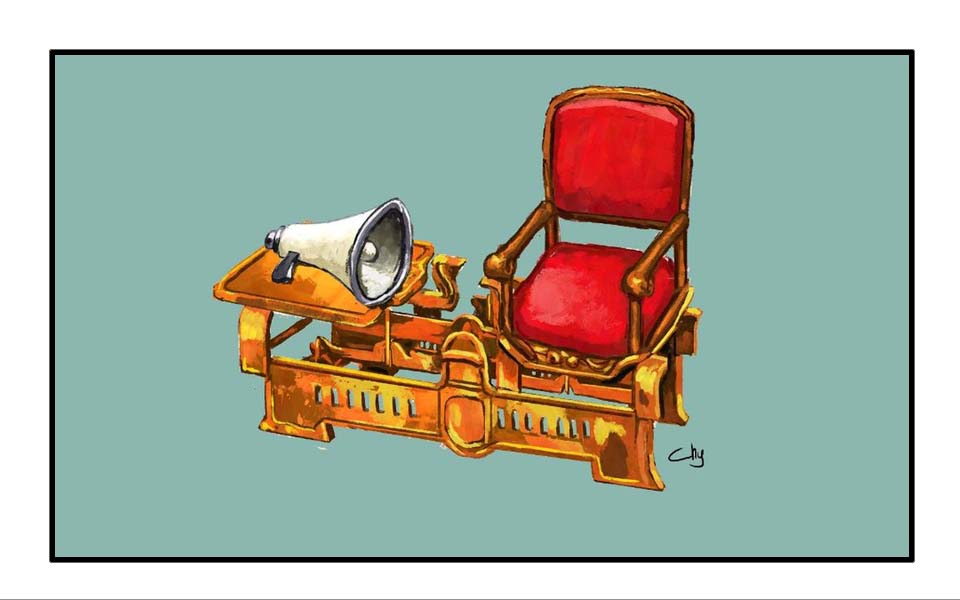
Kid: Hey Mr, all these candidates are still without a mate, yeah? (flag reads "2024 elections")
With the ruling Indonesian Democratic Party of Struggle (PDI-P) announcing Central Java Governor Ganjar Pranowo (pictured centre) as its presidential candidate on April 21, the other political parties are now readjusting their positions with regard to their own nominations ahead of the 2024 elections, with some contemplating joining the PDI-P and supporting Pranowo's candidacy.
The PDI-P has enough seats in parliament to nominate a presidential and vice-presidential candidate without the backing of any other parties. But all the other parties must pool their legislative seats to meet the threshold to field candidates.
The two other names announced as possible presidential candidates are Greater Indonesia Movement Party (Gerindra) Chairperson and Defense Minister Prabowo Subianto (pictured right) and former Jakarta governor Anies Baswedan (pictured left). But both will have to secure the backing of one or more parties to be able to be nominated as a presidential candidate. President Joko "Jokowi" Widodo is barred by law from running for a third term.
With all the presidential slots taken up by the three names, the parties are now focusing their attentions on the vice-presidential ticket.
Among the most prominent names being discussed are West Java Governor Ridwan Kamil, Tourism and Creative Economy Minister Sandiaga Uno, State-Owned Enterprises Minister Erick Thohir, Coordinating Security, Politics and Legal Affairs Minister Mahfud MD, National Awakening Party (PKB) Chairperson Muhaimin Iskandar, Golkar Party Chairperson Airlangga Hartarto, Democratic Party Chairperson Agus Harimurti Yudhoyono and East Java Governor Khofifah Indar Parawansa – the only woman in the field.
Some of these names have surfaced because of their popularity in surveys (Kamil, Uno, Thohir and Mahfud), for their money (Uno and Thohir), because they chair a party (Iskandar, Hartarto, Yudhoyono), and Prawansa because she is a woman and hails from East Java, one of the most heatedly contested battlegrounds in past elections.
While securing a vice-presidential nomination is high on the parties agenda, if they cannot get the slot they'll settle for the promise of potential Cabinet seats and control of a ministry in the hope of securing lucrative business contracts and influencing government policy in their favour.
But for most of the parties, their main priority is to win as many seats as possible in the national and regional legislative elections in February, and backing the right presidential candidate could boost their electoral chances, and conversely, backing the wrong horse could cost them seats.
The parties have until November 25 to decide on their presidential and vice-presidential candidates, so the weeks and months ahead will see tough negotiations between the parties, and any of the existing coalitions could well change before then.
[Based on an article by the Jakarta post titled "Analysis: Ganjar's nomination sets off flurry of political negotiations": https://www.thejakartapost.com/opinion/2023/05/08/ganjars-nomination-sets-off-flurry-of-political-negotiations.html]














